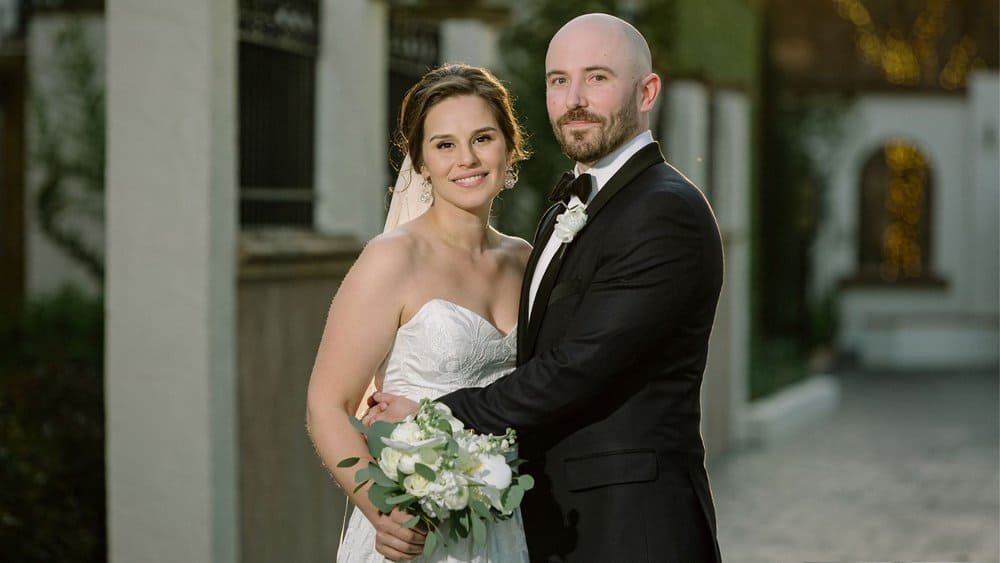When it comes to planning your wedding, one of the most important decisions you need to make is who to invite.
Depending on your budget, preferences, and relationships with friends and family, this can get a little tricky.
What if you want your favorite cousin to come, but you don’t really have the budget for all of the cousins in your family and your partner’s family? Or, maybe a parent wants you to invite everyone she works with, but that’s not what you have in mind?
While we don’t have an easy answer for every situation, we do have some etiquette guidelines and tips that can ease the way for you.
Planning with Parents
According to traditional etiquette, a wedding guest list should be broken up into three groups: guests of the bride’s parents, guests of the groom’s parents, and guests of the couple.
That’s the general rule, but, of course, life doesn’t always cooperate. In general, the best you can do is to try to keep the list as balanced as possible.
A few other things to consider when it comes to parents and guest list input are:
-Remember, if parents are helping with the cost of the wedding, they should get some say in who’s invited. Of course, you don’t have to agree with every request. Talk it over.
-Encourage respectful, ongoing communication as you, your parents, and your in-laws work on the list.
-If you and your partner are paying for the wedding, you have more control of the guest list, but we still encourage you to consider reasonable requests from your parents. Again, if you disagree, explain your reasons firmly and politely.
-Before you begin discussing who to invite to your wedding, have your budget in place. According to WeddingWire, couples pay an average of $216 per wedding guest. This can work in your favor if a parent has a long list of people they want to be invited. Show them what that will come to in dollars, and ask if that’s affordable.
-It also can help to set some general ground rules for asking parents who they’d like to invite. You could say something like, “Based on our budget and the size of our reception space we plan to invite “XX-number” of people to our wedding. We’re asking each set of parents to provide a list of “XX” people they’d like invited.”
Be Consistent
As you look at the close friends and family you’d like to invite, consider the feelings of those you’re thinking about not inviting. In most situations, if you’re inviting one grandparent, for example, it would be hurtful to leave others out. That kind of discrepancy would be noticed and likely would lead to hurt feelings.
There are some exceptions to this etiquette rule. If you, your partner, or someone close to you is estranged from someone—or feel like having someone attend the wedding could create a painful or difficult situation—leaving them off the list is probably the right decision.
Don’t Assume Someone Wouldn’t Want an Invitation
Just because your grandmother rarely leaves the house or your best friend from high school lives overseas doesn’t necessarily mean they wouldn’t make the extra effort to attend your wedding.
And, even if they can’t come, if you would have invited them under other circumstances, you should still invite them now. Your invitation will make them feel valued and included in your big day.
Also, keep in mind that you can harness the technology that became popular during the COVID-19 pandemic and help guests attend your wedding virtually. Post streaming instructions on your wedding website and include a link to them on your invitation.
Less Clear-Cut Decisions
Maybe you’re wondering if you should invite your boss, a childhood friend, or everyone you’re friends with.
This is something you and your partner should discuss. If you consider someone a positive part of your life, it’s worth considering an invitation, depending on your budget, available space, and overall vision for your wedding.
An etiquette tip: Sometimes, the deciding factor will be whether you attended someone’s wedding. If you were a guest at their wedding in the last 18 months, you probably should invite them to your big day.
Plus-One Guidelines
Giving all of your guests the option of bringing someone with them to your wedding is up to you.
A good rule of thumb is if someone is married or in a serious relationship, their partner should be invited. It’s also considered good etiquette to allow the members of your wedding party to have a plus-one, along with guests who won’t know anyone else at the wedding.
Wedding After-Parties
If you decide to have a wedding after-party, a way to continue your celebrating after your wedding celebration, etiquette requires you to invite everyone who attends your wedding. You don’t have to send invitations, though. You can send email blasts or texts, or you can include the after-party details on your wedding website.
Inviting Children
The decision of whether to allow guests to bring children can be challenging as well, but in the end, it is your choice. You absolutely do not have to include children at your wedding. We suggest making your decision clear on your invitations, applying this rule consistently, and making sure your invitations go out in plenty of time so guests with children can make childcare arrangements.

